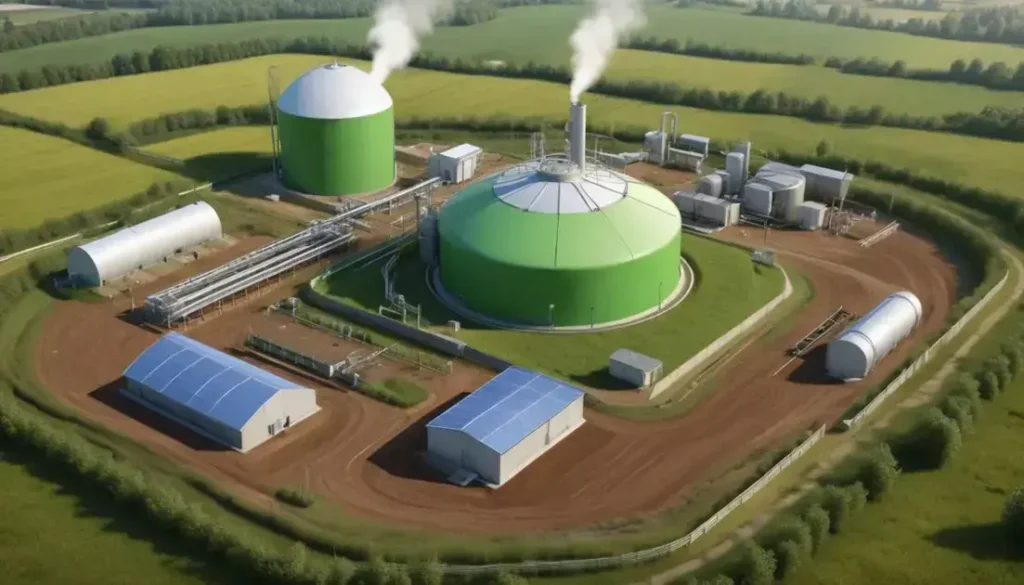DAC credits are a vital tool for Indian businesses to offset their carbon emissions, enabling them to engage in sustainable practices while complying with increasingly stringent environmental regulations.
In 2025, DAC credits will emerge as a vital tool for businesses in India looking to enhance their sustainability. Are you ready to explore how these innovations can shape your carbon strategies?
Deep Sky’s Launch of DAC Solutions
Deep Sky has recently made waves in the environmental sector with their innovative Direct Air Capture (DAC) solutions. This technology is designed to remove carbon dioxide directly from the atmosphere, effectively combating climate change. By harnessing cutting-edge engineering, Deep Sky aims to revolutionize how companies manage their carbon footprint.
These DAC solutions promise a sustainable pathway for industries striving to meet stringent climate targets. With growing pressure from consumers and regulators alike, businesses are keen to adopt technologies that facilitate carbon neutrality. Deep Sky’s offerings not only provide an effective means to capture carbon but also create opportunities for companies to sell carbon credits, contributing to their revenue streams while fostering environmental responsibility.
Moreover, the partnership with various stakeholders amplifies the impact of these solutions. By collaborating with firms and governments, Deep Sky ensures that the adoption of DAC is both scalable and effective. This collaboration invites new investments, paving the way for broader implementation of DAC technology across different sectors.
As companies explore carbon reduction methods, understanding how these innovative DAC solutions can transform operational practices will be crucial in their journey toward sustainability. The integration of such technologies highlights the evolving landscape of environmental initiatives and business strategies in the fight against climate change.
Rubicon Carbon’s Partnership Impact
Rubicon Carbon has forged strategic partnerships that are reshaping the landscape of carbon management. By collaborating with various stakeholders, the company is enhancing its ability to provide effective solutions for businesses seeking to offset their carbon emissions. These partnerships create a robust network that enables knowledge sharing and resource optimization.
One of the core aspects of this collaboration is the development of innovative carbon credit systems. Through these systems, businesses can track their emissions and purchase carbon credits to counterbalance their impact on the environment. This not only promotes sustainability but also encourages companies to invest in green technologies.
The impact of Rubicon Carbon’s initiatives extends beyond immediate carbon offsetting. They are also paving the way for regulatory compliance, enabling companies to meet increasing demands for environmental accountability. As regulations tighten globally, firms aligning with Rubicon’s vision position themselves favorably for future challenges.
Furthermore, these partnerships facilitate the transfer of technology and expertise across industries. This dynamic exchange fosters a culture of innovation, empowering companies to implement cutting-edge solutions for carbon capture and reduction. Ultimately, Rubicon Carbon’s partnerships signify a significant step forward in the collective endeavor to combat climate change effectively.
In Summary: The Future of Carbon Management
As we move forward, the role of companies like Rubicon Carbon and Deep Sky in carbon management will be crucial. Their innovative solutions and strategic partnerships are setting the stage for a sustainable future.
Embracing technologies such as Direct Air Capture and effective carbon credit systems allows businesses to not only comply with regulations but also engage in meaningful environmental action. These initiatives highlight the growing importance of sustainability in today’s marketplace.
For Indian businesses, staying informed and adapting to these changes is essential. By leveraging these advancements, they can enhance their operational efficiency while significantly reducing their carbon footprint.
Ultimately, the collaboration between technology providers and businesses is vital for achieving a greener and more sustainable world.
Common Questions About Carbon Management
What is Direct Air Capture (DAC)?
Direct Air Capture (DAC) is a technology that captures carbon dioxide directly from the atmosphere, helping to reduce greenhouse gas emissions.
How can my business benefit from carbon credits?
Carbon credits allow businesses to offset their emissions by investing in green projects, which can enhance their sustainability reputation and comply with regulations.
What role do partnerships play in carbon management?
Partnerships between companies like Rubicon Carbon and Deep Sky foster collaboration and innovation, enabling the development of more effective carbon management solutions.
How can Indian businesses implement DAC technology?
Indian businesses can implement DAC technology by investing in partnerships with tech providers that specialize in carbon capture, ensuring scalability and effectiveness.
What are the regulatory implications of carbon emissions?
With increasing regulations on carbon emissions, businesses must stay compliant to avoid penalties, making strategies for carbon management essential.
How can companies stay informed about sustainability trends?
Companies can stay informed by attending industry conferences, subscribing to industry publications, and engaging with thought leaders in sustainability.


